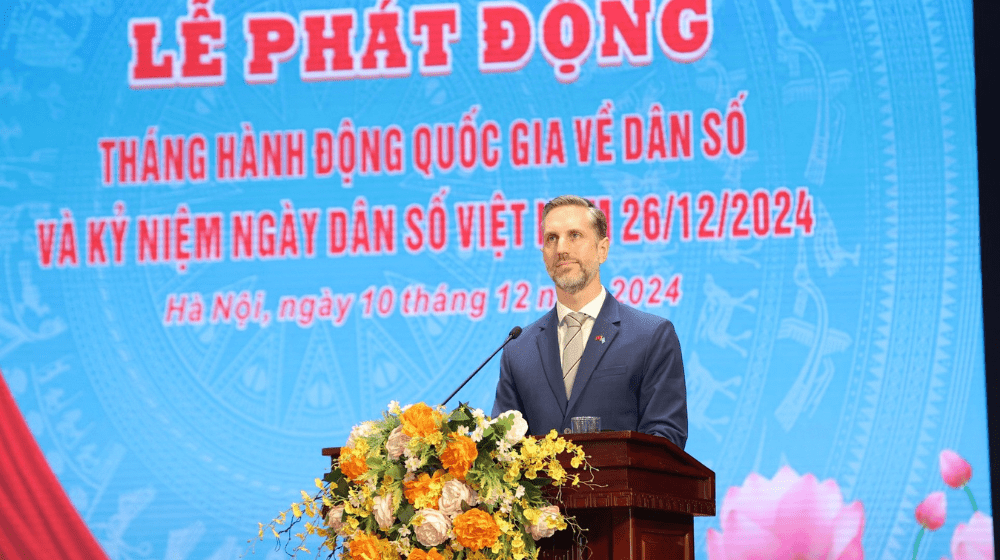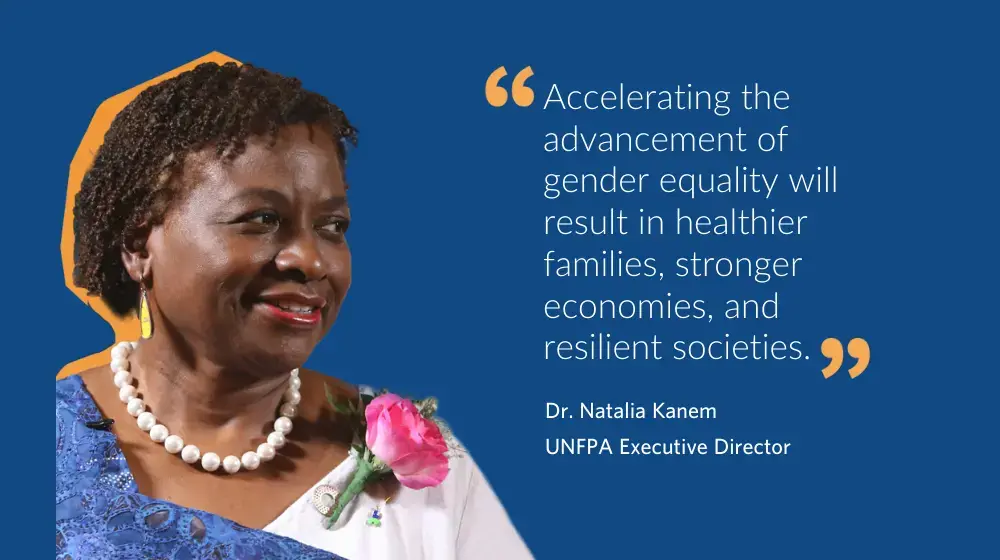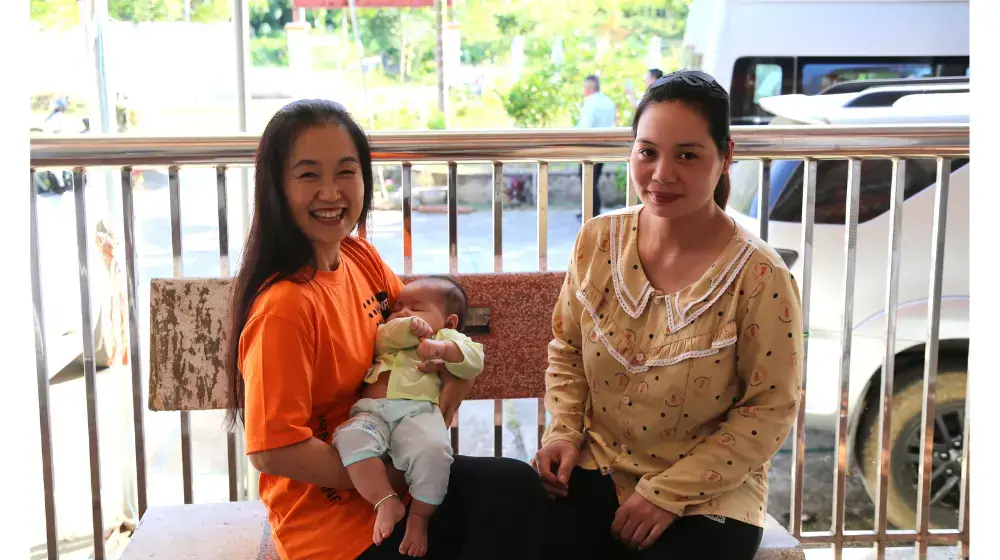- Excellency, Mr Tran Van Thuan, Vice Minister of Health;
- Excellency, Ms Vũ Thu Hà, Vice Chairperson of Ha Noi People’s Committee
- Representatives from Government’s ministries and agencies, and local authorities.
- Colleagues from the UN agencies and International Organisations;
- Local media.
It is a pleasure to join you, Excellencies, in celebrating Viet Nam’s Population Day as well as to join you in launching the National Action Month on Population. Today offers an opportunity to celebrate progress and achievements and commit to accelerating efforts to secure a sustainable future for all - leaving no one behind.
Inequalities exist everywhere and in every country. Our job is to pursue equality, equity and inclusion for marginalised or left-behind groups. Viet Nam takes this seriously and is making remarkable efforts to address inequalities and bridge socio-economic disparities across regions and population groups. Vietnamese people are living longer, reflecting the nation’s development. Over the past two decades, Viet Nam has achieved good progress in maternal health, reducing maternal mortality by 75% - from 165 deaths per 100,000 live births in 2000 to 46 in 2022. This achievement stands in contrast to the global reduction of 34% over the same period. Furthermore, over 60% of women aged 15-49 now use modern contraceptives, showcasing advancements in family planning and reproductive health.
However, despite these impressive gains, disparities persist. Maternal mortality in remote ethnic minority regions remains three to four times higher than the national average. The unmet need for modern contraceptives among unmarried young people is 40%, four times higher than among married couples. Gender-biased sex selection (GBSS) continues to challenge gender equality, with the sex ratio at birth reaching 111.5 boys per 100 girls in 2019, far above the normal ratio of about 105. This imbalance results in approximately 46,000 "missing" female births annually. Projections indicate that by 2034, Viet Nam could face a surplus of 1.5 million males aged 15 - 49, increasing to nearly 2.5 million by 2059 if this continues.
Beyond the numbers, son preference exacerbates violence and coercion, leaving women vulnerable to stigma. At the societal level, it fosters a "marriage squeeze," increasing potential for human trafficking or child marriage. Addressing these harmful practices requires urgent action and collective efforts to challenge deeply rooted harmful gender norms.
Significantly, nearly 23% of Viet Nam’s population is under the age of 15, and another 21% aged 15-24. This youthful population represents a dynamic force - a demographic dividend brimming with energy, innovation and potential to drive Viet Nam’s growth.
Yet challenges remain. Young people face barriers to accessing quality education, healthcare, and protection from online violence – known as technology-facilitated gender-based violence. If empowered through supportive policies, inclusive programs, and opportunities to participate in decision-making processes, youth can be pivotal in shaping a brighter future for Viet Nam. Investing in their education and health is not optional—it is essential to ensure they can thrive and lead the country’s development.
Viet Nam is in its “demographic window of opportunity,” where two working-age individuals support each dependent. However, demographic shifts will change this as Viet Nam is projected to become an aged population by 2036 where 20% of the population are over 60. Fertility rates are also changing.
These demographic shifts have complex implications but, without careful attention, responses can be driven by fears. That’s why preparing for the future requires policies that invest in people, enhance workforce participation - particularly for women and older adults, boost labour productivity and invest in health and education. It is equally important to address population ageing by supporting older individuals to remain active contributors to society and ensuring access to quality care for all.
UNFPA collaborates closely with the Government of Viet Nam to implement the ICPD agenda and to achieve Zero preventable maternal deaths, Zero unmet need for family planning, and Zero gender-based violence and harmful practices by 2030.
We remain steadfast in supporting Viet Nam’s population and development priorities, from improving access to quality sexual and reproductive health services to addressing son preference and GBSS. We are committed to leveraging reliable population data to inform evidence-based policies and programmes, helping to capitalise on demographic opportunities.
As we celebrate National Population Day 2024, let us reaffirm our commitment to equality, inclusion and the fulfilment of every individual’s potential. Together, we can create a future where no one is left behind, where gender norms are equitable and where Viet Nam’s youth, women, and ageing populations are empowered to thrive.
UNFPA stands ready to support Viet Nam in its journey toward sustainable development, leveraging population data, fostering partnerships, and promoting resilience in the face of a rapidly changing world.
Thank you, and I wish you all a successful celebration of Population Day!





